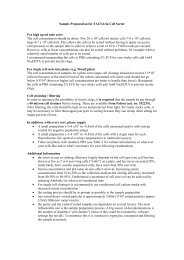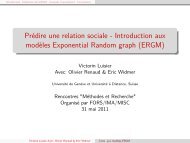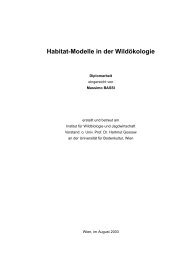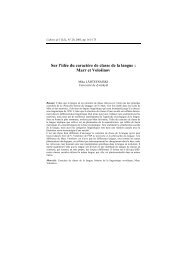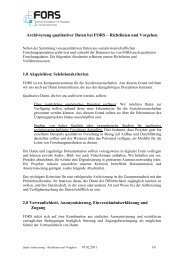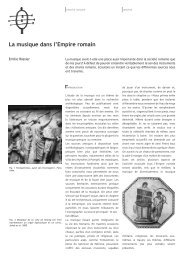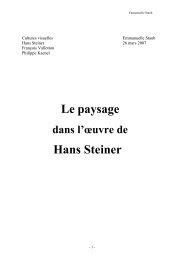conference programme book - European Survey Research ...
conference programme book - European Survey Research ...
conference programme book - European Survey Research ...
You also want an ePaper? Increase the reach of your titles
YUMPU automatically turns print PDFs into web optimized ePapers that Google loves.
140 THURSDAY 21 JULYaenon is given to former communist countries in Central and Eastern Europe, tesng the hypothesis thatthe mechanisms of support in these countries are different from those exisng in older democracies.3.22.3 Simulang Polical Cleavages with <strong>Survey</strong> Data: On the Meaning of Being ”Le” in Different <strong>European</strong>CountriesG. Müller 11 Université de Fribourg, SwitzerlandLe-wing ideology has in different <strong>European</strong> countries different polical meanings. State ownership in industry,redistribuon of wealth, social security, or universalisc social cizenship are some of the major ideologicalelements, which vary however from country to country with regard to their importance for those, who definethemselves as being le.3.22.4 An-liberal atudes in Western Europe : comparing the effects of inequalies referring to individualsituaons and to internaonal indicatorsF. Gonthier 11 Instut d’Etudes Poliques - Université de Grenoble, FranceThe EVS gives the opportunity to analyze how the atudes of Western <strong>European</strong>s towards economy havechanged between 1990 and 2008. Confidence in major companies and liberal preferences concerning economyhave strongly declined since 1990 ; whereas confidence in states economic or social funcons and need forreforms have connuously increased. Moreover, this gradual erosion of the beliefs in market refers to differentdimensions of an-liberalism, that we can qualify as ”intervenonism”, ”egalitarism” and ”radicality”.3.23 Informed pursuit of high response rates IITo be held on July 21, 2011 from: 11:00 to 12:30, in room 414.Coordinated by:• Achim Koch - GESIS - Leibniz Instute for the Social Sciences, Germany• Andy Peytchev - RTI Internaonal, United States• Ineke Stoop - The Netherlands Instute for Social <strong>Research</strong>/SCP, Netherlands3.23.1 Nonresponse strategies in the <strong>European</strong> Social <strong>Survey</strong> (ESS)I. Stoop 1 , A. Koch 21 The Netherlands Instute for Social <strong>Research</strong>/SCP, Netherlands; 2 GESIS - Leibniz Instute for the Social Sciences,GermanyThe objecve of the ESS is to design, develop and run a conceptually well-anchored and methodologicallybullet-proof study of changing social atudes and values. Achieving these aims in a cross-naonal contextrequires ’opmal comparability’ in the operaonalisaon of the study within all parcipang countries. Withregard to nonresponse this would mean equal response rates, and a balanced response composion in everycountry and every round. In order to aain this, a target response rate of 70% is prescribed in the centralspecificaons, and countries are expected to allocate funds and deploy efforts to pursue this target.3.23.2 Response rates: can we predict success?A. Ramos 2 , S. Lavado 11 Instuto de Ciências Sociais - University of Lisbon (ICS) , Portugal; 2 University of Lisboa - ICS, PortugalThe complaint is universal: it is increasingly difficult to achieve high response rates. Interviewers and respondentscontribute to the problem in different ways (e.g. Hox, J., de Leeuw, E.,



